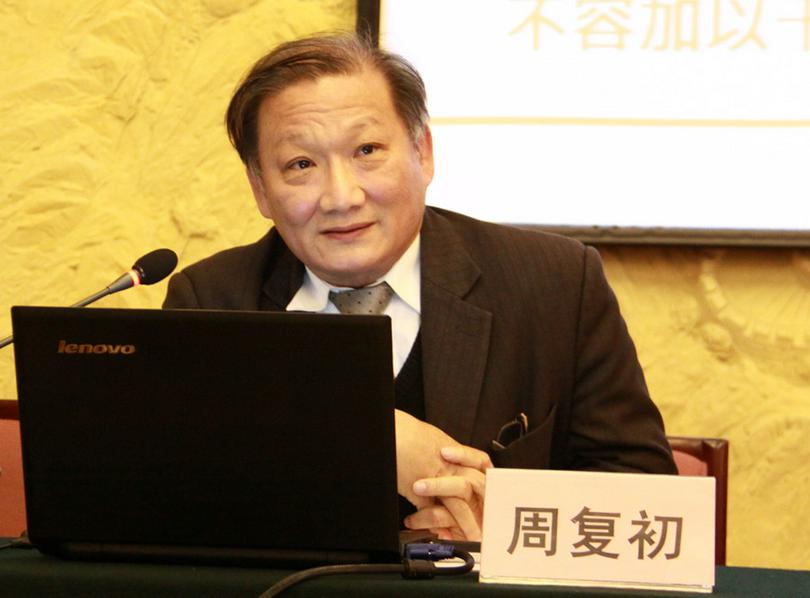The Internet age has a profound influence on the human society. The ancient religious information also radiates in the Internet age. On Dec 10, 2016, the legal issue of religious information online transmission was discussed at an international symposium on religion and rule of law. Many scholars have expressed their own perspectives.
Chou Fu-chu, the honorary professor of National Central University, made a speech on the legal issue of religious information online transmission. He said that the issue is also the hot topic in Taiwan. He insisted that the cost of verifying any legal issue or legal phenomenon is very high. For example, in Taiwan, we need 30 years and 23 million people to verify a clause of law. The cost of Mainland China must be higher. So he hopes we could get some valuable experience from history or other countries.
The summary of his speech is as follows:
There is already jurisdiction over online religious information under the laws of Taiwan. In Taiwan, online remarks are equal with public statements which can be charged with crime of defamation. The first verdict against cybercrime in Taiwan happened in 1998. A college student spread the false words online that his professor copied his report.
The religious speech may conflict with the obligations of the state. The freedom of religious behavior and association may affect others' freedom and rights. Sometimes they may even affect public order and social morals. So the freedom of religious speech can only be protected to some extent in Taiwan. The judge would have his own reference basis.
Cyber rumors violate the Social Order Security Act and are suspected of intimidating the public. In August a guy who used to predict a false thunderstorm in Taiwan said on Facebook that thousands of people will die in an earthquake which would happen in Kaohsiung and Tainan. However, the weather was quite good during that period. The guy was detained in the police station for three days and fined NT $ 30,000.
Taiwan has regulations on cyber humor with light penalties. At the same time, the law protects the freedom of religious belief. It is against the law to attack the online speech of religious groups without well-established evidence.
The regulation and management of religious network communication are also warmly debated. Taiwanese care about religious donations and cult most. Cult spread their destructive words through the Internet. The law should play its role in managing and regulating their behavior.
When it comes to the network fundraising, we need to legislate to regulate the process. The scandal of Tzu Chi Charity Foundation caused great controversy in 2015. In fact, the old regulations didn't cover the area of online fund-raising. At present, it can only be supervised and controlled through public supervision and comments.
Psychics in Taiwan open a cinema which claimed to see through people's previous life. They charged NT$ 3,300 every time. Some people accused him of fraud. However, Department of Investigation in Taipei thought that the truth of religious knowledge can't be proven and didn't put it on record.
Another example is Sunchili (a religious leader advocating the unity of man and universe, plus the thought of cosmic light ). He used to be famous in Taiwan. At last, the justice department didn't convict him of fraud because the government won't intervene in the contents of people's genuine religious belief.
It is difficult to reconcile online disputes among religious groups and it is time-consuming to define the legality of their speech. The lawsuit between Taiwan Buddhist Education Foundation and the Dalai Lama Tibetan Religious Foundation has taken five years since 2011.
In Taiwan, both religion believers and legal persons try to avoid using the word of heresy unless they have certain evidence. Cult is an academic term in Taiwan. If you call them heresy, they can sue you to the court. Without definite evidence or criminal facts, they can not be classified as heresy.
However, there are intervention mechanisms related to Cult. Liu Yuanzhao, vice president of the Tianjin Institute of Legal Psychology, said that the United States has a relatively mature intervention mechanism to regulate the civil activities of Cult.
He believes that China should carry out more interventions. He also insisted that it is not only the responsibility of the government. Every one of us should bear the burden to control the behavior of Cult. He thought that if the government imposes too much interference on Cult, those cult groups may stand on a moral high ground, thinking they are the pioneer of rebelling the government.
Take the online spread of Christianity in Taiwan as an example. Christian groups in Taiwan have been focusing on online media business since the Internet age. For example, the Christian Tribune is news-oriented with the highest Internet flow. The new life group church is popular among young people. Nowadays more and more young people are using Facebook.
In Mainland China, Cult is listed as heresy. It is registered in Taiwan as 'Almighty God Church.' The cult has changed their strategy online and set up a Chinese Bible website. You can hardly see the words of Almighty God or Cult. They have catered to the needs of young people and taken advantage of the fast and innovative network. Now the website is very popular.
On Aug 12, 2013, the 'Almighty God Church' published large-scale advertisements on the many media. Different churches in Taiwan set up Taiwan Christian Belief Research Institute, an organization to struggle against Cult because this destructive cult group has had some contact with Christianity recently.
We should take a look at the conclusion. The behavior online should be dealt with according to existing law. Online donation activities conducted by religious groups must be supervised. The activities should be transparent and the money should be used in the right way. The transcendence of religion makes the evidence collection process difficult. We had better use civil power to help resist the spread of cult.
Translated by: Emma Ma











